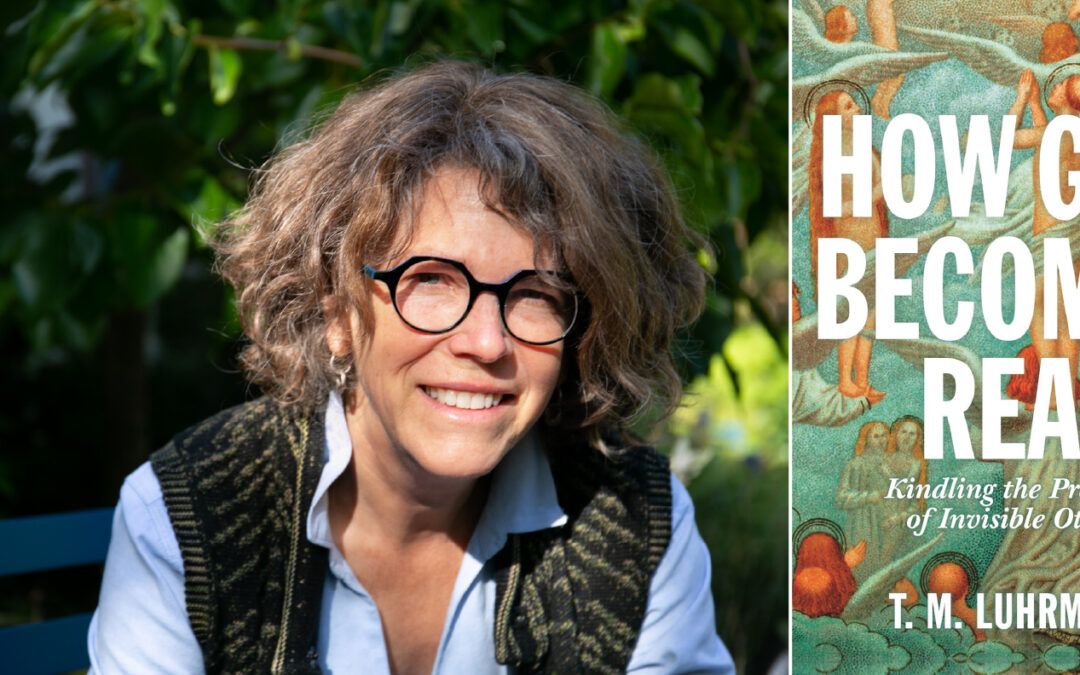Top Prize in Scholarship and Writing in Anthropology Awarded for Book That “Shows How Faith Is ‘Kindled’, or Intentionally Brought into Being”
Santa Fe, New Mexico—The School for Advanced Research is pleased to announce the recipient of the 2024 J. I. Staley Prize: Tanya Marie Luhrmann, Albert Ray Lang Professor of Anthropology at Stanford University, for her book How God Becomes Real: Kindling the Presence of Invisible Others (Princeton University Press, 2020).
Statement by the 2024 Staley Prize Selection Committee
How do people of faith come to feel the presence of God in their everyday lives? With admirable clarity and a directness that belies the sophistication of her argument, T. M. Luhrmann explores the practices that enable people to experience the divine as embodied, tangible, and real. Based on decades of wide-ranging fieldwork with evangelical Christians in the U.S., India, and elsewhere, as well as other denominational communities, she argues that it is action, discipline, and repetition that drive faith, rather than the reverse. Looking at the many ways that devout individuals cultivate a talent for joining private-but-shared imaginative worlds, Luhrmann shows how faith is “kindled,” or intentionally brought into being. In vivid and concise prose accessible to a wide audience, Luhrmann reveals how living in the “faith frame” demands effort for people in all religions. This book will engage anyone interested in questions of faith in an imperfect world and offers anthropologists a model for entering into important public conversations.
About Tanya Marie Luhrmann
Tanya Marie Luhrmann is the Albert Ray Lang Professor of Anthropology at Stanford University, with a courtesy appointment in Psychology. Her work focuses on the edge of experience: on voices, visions, the world of the supernatural and the world of psychosis. She uses a combination of ethnographic and experimental methods to understand the phenomenology of unusual sensory experiences, the way they are shaped by ideas about minds and persons, and what we can learn from this social shaping that can help us to help those whose voices are distressing. At the heart of the work is the sense of being called, and its possibilities and burden.
Luhrmann’s previous book was awarded the $100,000 Grawemeyer Prize for Religion by the University of Louisville. She has published over thirty op-eds in The New York Times, and her work has been featured in The New Yorker, The New York Review of Books, The Times Literary Supplement, Science News, and many other publications. She is the author of Persuasions of the Witch’s Craft, The Good Parsi, Of Two Minds, When God Talks Back, Our Most Troubling Madness, and How God Becomes Real, and is currently at work on a book titled Voices.
About the J. I. Staley Prize
Since 1988, the School for Advanced Research has awarded the J. I. Staley Prize to a living author for an English-language book that exemplifies outstanding scholarship and writing in anthropology. The award recognizes innovative works that go beyond traditional frontiers and dominant schools of thought in anthropology and add new dimensions to our understanding of the human species. It honors books that cross subfield boundaries within anthropology and reach out in new and expanded interdisciplinary directions. Books awarded the Staley Prize are nominated by fellow anthropologists and chosen by an anonymous panel of scholars representing the diversity of anthropology’s subfields. The prize includes a cash award of $7,500. Author Luhrmann will be presented with the award by SAR President Michael F. Brown at a ceremony at Stanford University this spring. J. I. Staley, whose generous bequest created this award, was a businessman from Wichita Falls, Texas, who served on SAR’s Board of Directors for fifteen years.
Recent recipients of the J. I. Staley Prize
2023 Hugh Raffles The Book of Unconformities: Speculations on Lost Time
2022 J. Lorand Matory The Fetish Revisited: Marx, Freud, and the Gods Black People Make
2021 Laurence Ralph Renegade Dreams: Living Through Injury in Gangland Chicago
